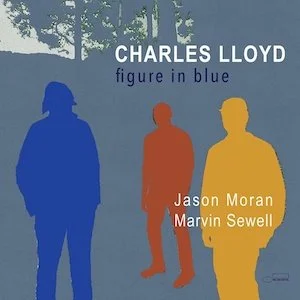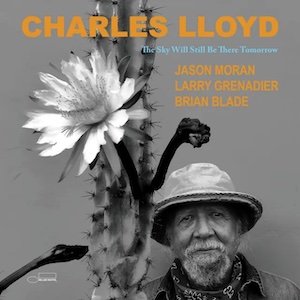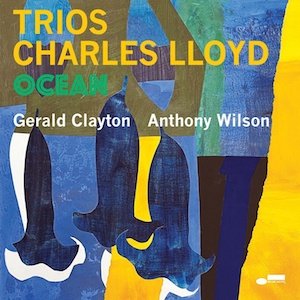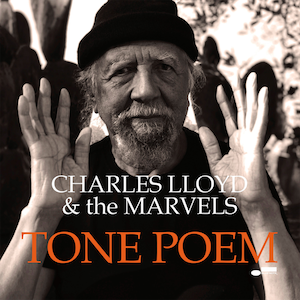Label: Blue Note Records, 2025
Personnel - Charles Lloyd: tenor saxophone, flute, tarogato; Jason Moran: piano; Marvin Sewell: guitar.
Trailblazing saxophonist Charles Lloyd casts an enchanting Southern spell with his latest double album, Figure in Blue, another formidable triumph affirming his boundless creativity, ancestral roots, and deep spirituality. He leads a new trio with longtime collaborator Jason Moran on piano and guitarist Marvin Sewell as the unpredictable wild card. Together, they excavate authentic Delta blues from compelling harmonic designs while honoring Lloyd’s many influences.
Duke Ellington, an early inspiration, receives three dedications. Lloyd’s original “Figure in Blue, Memories of Duke” contrasts happy guitar strums and shimmering piano with reflective passages, all threaded by improvisations that ripple with tension and beauty. The trio also revisits Ellington’s “Heaven” and “Black Butterfly”, both previously featured on Lloyd’s The Water is Wide (ECM, 2000).
Other tributes include Billy Holiday on the haunting eulogy “The Ghost of Lady Day”, where Lloyd’s rich, dramatic tenor sound collides with the rhythm section’s sensitive interplay; tabla player Zakir Hussain on the transcendental Eastern-infused meditation “Hymn to the Mother, For Zakir”; and Leonard Bernstein via a poignant reading of West Side Story’s “Somewhere”. The ballad “Hina Hanta, the Way of Peace”, invokes Lloyd’s Choctaw ancestry with unmistakable touch and spiritual openness. Lloyd explores beautiful melodies, often linked by swiftly articulated arpeggios, over the gauzy accompaniment provided by Moran and Sewell, the latter showing a fantastic control of volume swells.
Delta blues surfaces throughout but anchors firmly on “Chulahoma”, rhythmically woven by distorted electric guitar and trilling piano, and on “Blues For Langston”, a dedication to poet Langston Hughes with Lloyd on flute. Sewell’s detailed guitar work stands out on both pieces. Old compositions are reframed such as “Song My Lady Sings”, a 3/4 ballad culled from his second album Of Course, Of Course (Columbia, 1965), and both “Desolation Sound” and “Ruminations”, which are given a mix of post-bop and avant-garde treatments in their long-form arrangements.
Figure in Blue captures the soulfulness of Lloyd’s writing, both new and revisited, while showcasing the trio’s superb dynamics—drawing listeners ever deeper into his timeless sound world.
Favorite Tracks:
02 (CD1) - Hina Hanta, the Way of Peace ► 03 (CD1) - Figure in Blue, Memories of Duke ► 01 (CD2) - The Ghost of Lady Day ► 04 (CD2) - Black Butterfly














